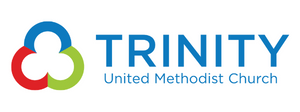1.12.25 CREATING THE COVENANT: The Heart of God
Jeremiah 31:31-38, John 13:31-35
Episode 1: The Year of Covenant
Reading: An Introduction to the Bible in the CEB
Over the past few weeks at Trinity, one question has surfaced repeatedly: “Why would we spend an entire year learning about covenants?” The first time I heard it, I thought, Huh, not everyone finds covenants as fascinating as I do. Yet, every time the question came up, my answer stayed the same: Covenants are central to how God relates to humanity.
In fact, the theme of covenant is one of the most important threads running through all of Scripture. Covenants are the backbone of God’s redemptive plan to restore humanity to its divine calling. From Genesis onward, God enters into formal partnerships (covenants) with various people to rescue and renew creation. These divine-human partnerships drive the biblical narrative forward, culminating in Jesus. Telling the story of God redeeming humanity through Jesus is, at its heart, telling the story of God’s covenantal relationship with us.
So, what exactly is a covenant? A covenant is a relational partnership where two parties make binding promises to work toward a common goal. These agreements often include oaths, signs, and ceremonies. While they define obligations and commitments, covenants are different from contracts because they are deeply relational and personal.
Scripture shows us several types of covenants. Some are between individuals—for example, marriage, where two people commit to lifelong faithfulness and devotion. Others are between groups of people and God, such as the promises made during baptism to love, nurture, and care for a child. Big or small, covenants are at the heart of how God interacts with people.
When we view Scripture through the lens of covenant, one thing becomes clear: God is faithful, and humans are very good at breaking the promises we make to God.
The story of covenant begins in the Garden of Eden. While the term “covenant” isn’t explicitly used with Adam and Eve, its components are present. God promises to care for them and gives them dominion over creation, but they are required to uphold their end by refraining from eating the fruit of the Tree of the Knowledge of Good and Evil. Yet, prodded by the serpent, Adam and Eve fail their first test of covenant faithfulness. This pattern—human failure followed by God’s faithfulness—repeats throughout Scripture until the arrival of the New Covenant.
There are five major covenants in the Bible:
- The Noahic Covenant
- The Abrahamic Covenant
- The Mosaic Covenant
- The Davidic Covenant
- The New Covenant
If these sound unfamiliar or overwhelming, I recommend watching this video from The Bible Project for a helpful overview.
The story of covenant reaches its climax in the New Covenant, established through Jesus—God with us. This covenant, foretold by the prophets, is enduring and transformative. One of my favorite prophecies about the New Covenant is found in Jeremiah 31:31-34:
"The time is coming,” declares the Lord, “when I will make a new covenant with the people of Israel and Judah. It won’t be like the covenant I made with their ancestors when I took them by the hand to lead them out of Egypt. They broke that covenant, though I was their partner,” declares the Lord. “But this is the covenant I will make with the people of Israel after that time: I will put my law in their minds and write it on their hearts. I will be their God, and they will be my people. No longer will they teach their neighbor, saying, ‘Know the Lord,’ because they will all know me, from the least to the greatest,” declares the Lord. “For I will forgive their wickedness and will remember their sins no more.”
So why are we dedicating 2025 to the theme of Covenant at Trinity?
First, it provides an opportunity to immerse ourselves in Scripture and turn our hearts to God rather than being tossed about by the chaos of daily life.
Second, and more importantly, we cannot fully understand God without understanding how God relates to us—and God chooses covenant as the foundation of that relationship.
Living in covenant with God is a privilege. It’s messy and hard, but through Jesus and the New Covenant, God remains faithful even when we falter. Over the next eight weeks, we will explore together how God creates covenantal partnerships with humanity to draw us closer to God’s goodness.
Discussion Questions:
- Covenants are "relational partnership" that is both personal and binding. How does this definition influence your understanding of how God interacts with humanity and with you personally?
- Throughout Scripture, humans repeatedly fail to uphold their part of the covenant, yet God remains faithful. Why do you think God chooses to remain committed to humanity despite our shortcomings?
- Modern examples of covenants include marriage and baptismal promises. How do these examples help you relate to or understand the biblical idea of covenant? Can you think of any other examples of covenants?
- Jeremiah 31:31-34 describes the New Covenant as one written on hearts rather than stone. What does it mean to you that God’s laws and promises are internal and relational rather than external and transactional?
- Learning about covenants helps us better understand God’s character and how God relates to us. How might dedicating time to this theme woven throughout scripture deepen your faith or change how you live out your relationship with God?
To find a group, purchase a book, or learn more, click HERE.
